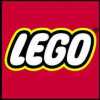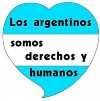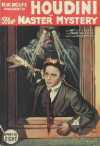Definition: (noun) A dabbler in an art or a field of knowledge.
Synonyms: sciolist.
Usage: He claimed to be serious about his paintings, but he was at heart a mere dilettante.
Discuss
Source: The Free Dictionary
Definition: (noun) A dabbler in an art or a field of knowledge.
Synonyms: sciolist.
Usage: He claimed to be serious about his paintings, but he was at heart a mere dilettante.
Discuss
Source: The Free Dictionary
 In 1804, British Parliament approved the laying of a railway line between Swansea and Oystermouth in South Wales to move limestone from the quarries of Mumbles to Swansea and to the markets beyond. Later renamed the Swansea and Mumbles Railway, the line was approved to carry passengers in 1807. The world’s first regular passenger service began that same year and operated in one form or another for more than a century and a half before it was decommissioned. What powered the line’s first trains? Discuss
In 1804, British Parliament approved the laying of a railway line between Swansea and Oystermouth in South Wales to move limestone from the quarries of Mumbles to Swansea and to the markets beyond. Later renamed the Swansea and Mumbles Railway, the line was approved to carry passengers in 1807. The world’s first regular passenger service began that same year and operated in one form or another for more than a century and a half before it was decommissioned. What powered the line’s first trains? Discuss
Source: The Free Dictionary
 The custom of handing out a dole, or allotment of flour, to the village poor in Tichborne, Hampshire, England, dates back to the 12th or 13th century. Lady Mabella Tichborne, who was on her deathbed at the time, begged her husband to grant her enough land to provide an annual bounty of bread to the poor, who were suffering from a recent failure of the wheat crop. On March 25, or Lady Day, each year, villagers in need of assistance gather at the porch of Tichborne House to claim their portion of the gift: a gallon of flour for adults, half as much for children. Discuss
The custom of handing out a dole, or allotment of flour, to the village poor in Tichborne, Hampshire, England, dates back to the 12th or 13th century. Lady Mabella Tichborne, who was on her deathbed at the time, begged her husband to grant her enough land to provide an annual bounty of bread to the poor, who were suffering from a recent failure of the wheat crop. On March 25, or Lady Day, each year, villagers in need of assistance gather at the porch of Tichborne House to claim their portion of the gift: a gallon of flour for adults, half as much for children. Discuss
Source: The Free Dictionary
 Known as the “Queen of Soul,” Aretha Franklin began singing in church choirs as a child before achieving mainstream success with a string of hit songs including “Respect,” “Think,” and “Natural Woman.” In 1987, she became the first woman inducted into the Rock and Roll Hall of Fame, and, in 2005, she received the Presidential Medal of Freedom, the highest civilian decoration in the US. She is the second most honored female singer in the history of the Grammy Awards. How many has she won? Discuss
Known as the “Queen of Soul,” Aretha Franklin began singing in church choirs as a child before achieving mainstream success with a string of hit songs including “Respect,” “Think,” and “Natural Woman.” In 1987, she became the first woman inducted into the Rock and Roll Hall of Fame, and, in 2005, she received the Presidential Medal of Freedom, the highest civilian decoration in the US. She is the second most honored female singer in the history of the Grammy Awards. How many has she won? Discuss
Source: The Free Dictionary
 Lego is a line of toys featuring colorful plastic bricks, gears, and minifigures that can be assembled to create models of almost anything imaginable. The company had very humble beginnings in the workshop of Ole Kirk Christiansen, a poor carpenter from Denmark, but today manufactures about 20 billion bricks a year. A substantial fan culture has developed that has used the toys to build such things as a harpsichord, a pendulum clock, and an electronic lab kit. What does “Lego” mean? Discuss
Lego is a line of toys featuring colorful plastic bricks, gears, and minifigures that can be assembled to create models of almost anything imaginable. The company had very humble beginnings in the workshop of Ole Kirk Christiansen, a poor carpenter from Denmark, but today manufactures about 20 billion bricks a year. A substantial fan culture has developed that has used the toys to build such things as a harpsichord, a pendulum clock, and an electronic lab kit. What does “Lego” mean? Discuss
Source: The Free Dictionary
Definition: (adjective) Of or associated with sacred persons or offices.
Synonyms: priestly, sacerdotal.
Usage: The laws did not apply to the heratic class, whose members were held as nearly gods.
Discuss
Source: The Free Dictionary
 On March 24, 1989, the Exxon Valdez oil tanker hit Prince William Sound’s Bligh Reef and spilled approximately 11 million US gallons (41 million liters) of crude oil into the sea, covering 11,000 square miles (28,000 km²) of ocean. As a result of the spill, an estimated 250,000 sea birds, 1,000 sea otters, and countless fish and other wildlife died. The ship’s captain was widely criticized after the incident, but many others factors contributed to the crash. What are some examples? Discuss
On March 24, 1989, the Exxon Valdez oil tanker hit Prince William Sound’s Bligh Reef and spilled approximately 11 million US gallons (41 million liters) of crude oil into the sea, covering 11,000 square miles (28,000 km²) of ocean. As a result of the spill, an estimated 250,000 sea birds, 1,000 sea otters, and countless fish and other wildlife died. The ship’s captain was widely criticized after the incident, but many others factors contributed to the crash. What are some examples? Discuss
Source: The Free Dictionary
 In Argentina, this is a public holiday that commemorates all those who lost their lives or otherwise suffered under the National Reorganization Process, a military dictatorship that seized power in Argentina on March 24, 1976. The junta held power for eight years, and, in that time, at least 30,000 citizens were kidnapped, tortured, and executed for their political views. Around the country, art exhibitions, poetry readings, prayer services, and other cultural events are dedicated to remembering the events of March 24. Discuss
In Argentina, this is a public holiday that commemorates all those who lost their lives or otherwise suffered under the National Reorganization Process, a military dictatorship that seized power in Argentina on March 24, 1976. The junta held power for eight years, and, in that time, at least 30,000 citizens were kidnapped, tortured, and executed for their political views. Around the country, art exhibitions, poetry readings, prayer services, and other cultural events are dedicated to remembering the events of March 24. Discuss
Source: The Free Dictionary
 Born Erik Weisz, Houdini was an American magician, escape artist, and silent film star famed for his escapes from bonds of every sort—locks, handcuffs, straitjackets, and underwater chests. One of his most notable non-escape illusions was performed in 1918, when he had an elephant vanish onstage. In his later years, he campaigned against magicians and mind readers who claimed supernatural powers and even took aim at Jean-Eugène Robert-Houdin, from whom he derived his name. How did Houdini die? Discuss
Born Erik Weisz, Houdini was an American magician, escape artist, and silent film star famed for his escapes from bonds of every sort—locks, handcuffs, straitjackets, and underwater chests. One of his most notable non-escape illusions was performed in 1918, when he had an elephant vanish onstage. In his later years, he campaigned against magicians and mind readers who claimed supernatural powers and even took aim at Jean-Eugène Robert-Houdin, from whom he derived his name. How did Houdini die? Discuss
Source: The Free Dictionary
 The Gulag was a system of forced-labor prison camps in the USSR, from the Russian acronym for the Main Directorate of Corrective Labor Camps, a department of the Soviet secret police. It was first established under Lenin during the early Bolshevik years and ultimately included 476 camp complexes. The system reached its peak after 1928 under Stalin, who used it to maintain the Soviet state by keeping its populace in a state of terror. Whose book publicized the gulag system to the Western world? Discuss
The Gulag was a system of forced-labor prison camps in the USSR, from the Russian acronym for the Main Directorate of Corrective Labor Camps, a department of the Soviet secret police. It was first established under Lenin during the early Bolshevik years and ultimately included 476 camp complexes. The system reached its peak after 1928 under Stalin, who used it to maintain the Soviet state by keeping its populace in a state of terror. Whose book publicized the gulag system to the Western world? Discuss
Source: The Free Dictionary